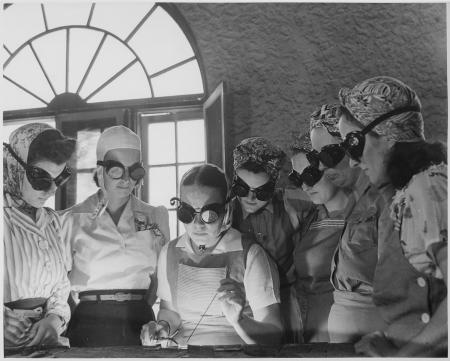Big increase in requests for advice and support
7 Mar 2019An important aspect of meemoo’s work is the expertise it provides when responding to requests for advice and support from people involved in looking after (digital) cultural heritage collections.
This service was provided by PACKED until 2018, with the number of advice requests increasing steadily from 2011 onwards. In 2018 we handled around 215 new advice requests, and 2019 looks very promising too – with 35 new requests for advice and support already received. In 2018 we handled around 240% more requests for advice than we did in 2012. This was an increase of 187% compared to 2014, and 126% more than in 2016. This big increase is mainly thanks to more people being familiar with the services we provide, but we’ve also improved our registration and documentation processes.

We receive these requests for advice through various channels: email, phone, in meetings or via the contact form on the meemoo and TRACKS website.
What kind of requests do we receive?
Some of the requests for advice that we receive are quick and easy to handle. Examples from recent weeks include questions about:
playing VOB files;
organising a Wikipedia editing session;
copyrights for photographers creating images of objects;
the availability of free and easy-to-use image editing software.
We’ve also had new requests for advice about training recently, and these kinds of requests need a bit longer to prepare a proper response. For example, training could be about:
enriching data;
using Open Refine for data cleansing;
Wikimedia platforms such as Wikipedia, Wikidata and Wikimedia Commons, where data and content can be made freely available.
We’re also starting work on a series of more complex advice requests which commonly require (extensive) tailored advice and support, and can often turn into full-blown, long-term projects. For example, we’ve recently received several requests relating to:
designing processes to define a digital strategy and improve and update a digital infrastructure;
running multiple projects simultaneously to develop an online platform;
preparing datasets and photos for upload to Wikidata and Wikimedia Commons, and then uploading and visualising them;
drawing up quotes for digitisation, with quality control of the results produced.
Some requests for advice take a long time to process, especially when they involve further consultation and support. A simple request to provide contact details for digitisation companies is often only the starting point in a longer chain of consultation, advice and support. Consider for example what happens when someone asks for help to draw up a quote, commission a digitisation project and perform quality control on the results produced – a process like this can last several months or even years.
Who do we receive requests from?
The requests for advice that we receive come from various different groups:
cultural heritage organisations responsible for managing collections (e.g. museums, cultural archives, cultural heritage libraries);
cultural producers (e.g. arts organisations);
intermediary organisations (e.g. cultural institutions with a service provider role);
(other members of) cultural heritage communities;
administrative bodies (e.g. local authorities, the Flemish Government);
ICT experts (e.g. companies that provide ICT services to cultural organisations).
Over half the requests we receive come from institutions that manage collections and receive structural operational funding from the Flemish Government. A second main source of requests is arts organisations and individual artists; in 2018 more than 35% of the advice requests we received from the arts sector were for performing arts. We also receive a significant number of requests from administrative bodies or institutions with close links to government (e.g. city archives) and from research and education institutions. In terms of geographical distribution, over 90% of all advice requests come from major cities such as Antwerp, Brussels, Bruges, Ghent, Kortrijk, Leuven and Mechelen. It’s notable that we receive very few requests for advice from the province of Limburg.
Is the advice always free?
Our work is funded by the Flemish Government, and this enables us to handle the majority of requests for free as part of our basic service provision. If a lot of time needs to be invested in responding to a request for advice, however, especially when providing tailored advice where the results or expertise gained cannot be reused, this consultation and support extends beyond our basic service provision. A fee therefore needs to be agreed to fulfil these requests.
Need digital cultural heritage advice or support? Please do not hesitate to email us at info@meemoo.be
